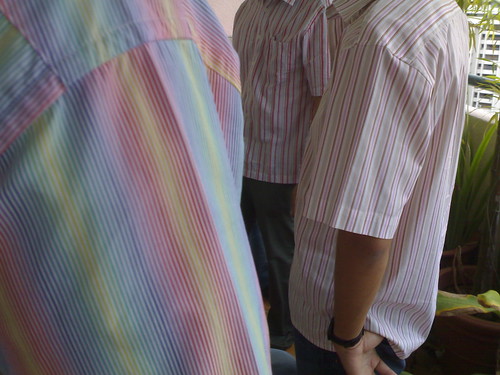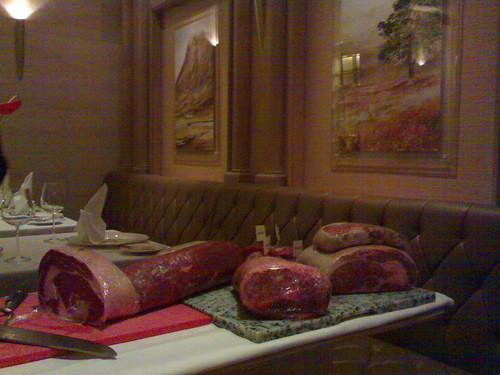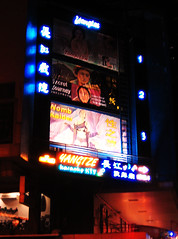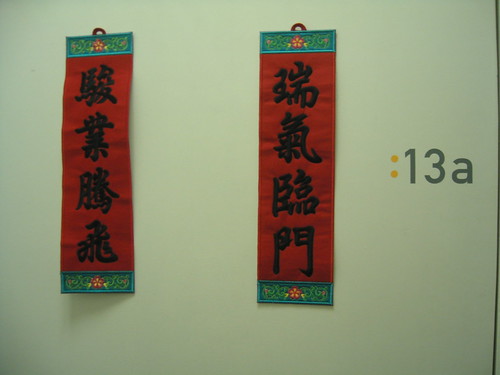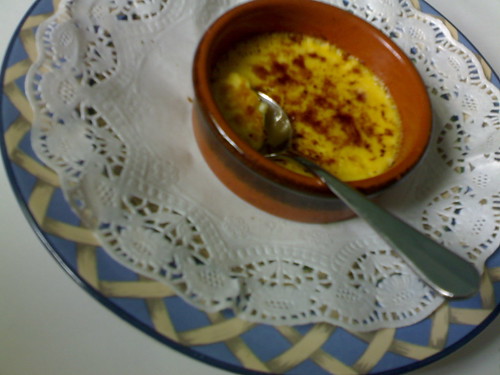Another year, another list --- this one the most dismal yet. My excuse is that my daily schedule switched from having a 45-minute commute to/from work, to a 30-minute walk-bus-walk commute that wasn't as conducive to uninterrupted reading, particularly since I can't read on the bus without becoming violently ill.
Nevertheless,
19 books, down from
44 last year and
24 the year before, and I only completed the first book in May? That's pretty dismal. And I didn't get around to trying Coetzee, like I said I would, either. And a number of books were things I had to read for work, so.
At any rate, here's the rundown. An asterisk indicates a book that I'd read before.
1.
The Line of Beauty, Alan Hollinghurst (May)
I've really enjoyed Hollinghurst since I picked up
The Swimming Pool Library a few years ago, and this one took the Booker in a really strong Booker year too, so there's no excuse for why I took six months to read it. All I can say is that with the aforementioned change in my daily commuting schedule, it took me a while to settle down and find any regular reading time, and my enjoyment of
The Line of Beauty suffered for it. I must've reread the first one-third of the novel at least three times before I worked up the momentum to finish it. I'll be the first to admit that I didn't understand all the political context, but with Hollinghurst, I never feel I have to because it's his characters that carry the story --- every last emotionally raw and compellingly flawed one of them.
2.
Philosophy: The Basics, Nigel Warburton (June)
Something I had to read for work, but Warburton is so eminently readable that I finished it in five hours. An excellent introduction to general philosophy. I should get a copy for our home library.
3.
Flaubert's Parrot, Julian Barnes (June)
I dimly recall that this book was on the recommended reading list my English teacher gave us on the first day of school in junior college. I've read (and enjoyed) other Barneses and was happy to pick this up for a few bucks at
one of those massive book sales they have at the Singapore Expo. Unreliable narrator, ahoy!
4.
An Introduction to Political Philosophy, Jonathan Wolff (June)
Another one for work, and another good introductory-type book. Wolff is the first guy who's helped me make sense of how Hobbes, Locke and Mill stand in relation to each other --- though if you asked me now, I'd have to go back and reread those chapters just to be absolutely sure. (Some things refuse to stay in my head, like the number of 'r's in "harassment" and the different broad trends in European thought.)
5.
The Theory of Knowledge, Peter Cole (June)
Also for work. A cut-and-dried guide to philosophy for the AS Level in the UK. Blah blah, blah blah.
6.
The Lion, the Witch and the Wardrobe, C.S. Lewis (June) *
Realising that the movie adaptation would be out within the year, I hastily reread this for the first time since I was a teenager, and was brought up short by how straightforward and short it was. Aslan doesn't really do anything in the book, does he?
7.
The Philosophy Gym, Stephen Law (June)
Yeah, yeah, another one for work. Everyday situations and issues to puzzle over from a philosophical perspective. Entertaining, but honestly, I lack the true discipline required to do this, on my own, all the time.
8.
Inventing Herself, Elaine Showalter (July)
A survey of feminist figures of the past century or so. Very educational. In addition to art history, I clearly should've dabbled in some women's studies in college.
9.
Harry Potter and the Half-Blood Prince, J.K. Rowling (August)
Don't even get me started on what a weak book this was.
10.
Cute, Quaint, Hungry and Romantic: The Aesthetics of Consumerism, Daniel Harris (August)
Ever wondered why we buy what we buy? A really engaging examination of not only marketing tactics, but also how certain broad social assumptions about cuteness, quaintness, hunger and romance basically screw up our ability to enjoy or appreciate anything. If nothing else, it made me think twice about what toys I ever buy for any children that we might hypothetically have.
11.
Kafka by the Shore, Haruki Murakami (August)
The first Murakami I've read, and a really beautiful novel. I'm quite enchanted by the real/surreal, and of course, the cats.
12.
Eucalyptus, Murray Bail (September)
A gem of a novel, which
Stellou sent me from Sydney. More of the real/surreal, and I never thought I'd be so taken in by a wealth of information about eucalyptus trees.
13.
Postmodernism : A Very Short Introduction, Christopher Butler (October)
I read this for work, but also because I thought I was at a stage in my life when I ought to have an inkling of what postmodernism is. Interestingly, the author isn't shy about highlighting what he perceives are the limitations of postmodernism, so it reads as both an introduction and a critique.
14.
Postmodern Singapore, William S W Lin (November)
I quite naturally went on to read this, after the previous book. A look at how postmodernism is manifested in Singapore's architecture, literature, social attitudes and so on. The more I think about it, the less "real" anything is in Singapore.
15.
Aloft, Chang-Rae Lee (December)
Redemption, at last! Lee's first novel,
Native Speaker, is one of my favourite books, but I thought his second,
A Gesture Life, was a huge melodramatic debacle. With
Aloft, he's back in top form. On the other hand, I freely confess that I have a weakness for these paeans to the unreliable narrator/middleaged patriarch in crisis/dysfunctional family with estranged intergenerational ties.
16.
Kiss and Tell, Alain de Botton (December)
Another of those unreliable-narrator novels, except that the character the narrator's writing about proves to be more interesting than him. I just wish the publisher hadn't given it a dreadful fuschia cover that, together with the title, made it look more chick lit than literary exploration of the biography. Yeah, yeah, so I'm a book snob...
17.
Once While Travelling: The Lonely Planet Story, Tony & Maureen Wheeler (December)
An Xmas gift from G-man, which I read lickety-split in two days. If you can't tell from the book title, it's a recounting of how the
Lonely Planet guidebooks and the ensuing media empire came to be. It turned out to be less interesting than I expected --- some chapters pretty much read, " ... and then in December, I travelled to countries A, B and C, finishing up a review of the ABC guidebook, before moving on to countries D, E and F over the following six months, despite a delay due to visa blahblahblah ... ". Nevertheless, the overall narrative was strangely engrossing, as evinced by the fact that I had no trouble finishing the book that quickly.
And it made me think twice about travelling with children: while my parents have always had what seemed to be a sensible philosophy of not taking us kids anywhere fancy travel-wise till we hit our teens, because we wouldn't remember or appreciate anything if we were too young, the Wheelers traipsed all over Southeast Asia with their kids when the latter weren't even old enough for school yet. Maybe it's not so much if you take kids someplace as what you do with them when you get there?
18.
The Lord of the Rings: The Fellowship of the Ring, J.R. Tolkien (December) *
Because
watching the movies back-to-back made me want to reread the trilogy. It's only the second time I'm reading this book, and the first time since I've been ODing on the movies, so there were plenty of moments when I was like, "A-ha, another point where the film diverges from the novel."
19.
The Plot Against America, Philip Roth (December)
I'm a big fan of Roth, despite the "manliness" of his books, and I could see where he was going with this exploration of alternative history --- what if Charles Lindbergh, with his Nazi sympathies, defeated FDR in a presidential election. But as the novel wore on and the plot began to turn on the fictitious Lindbergh administration's accumulated anti-Semitic measures, I couldn't help but wonder why any author needed to bother imagining this alternative history, when reality offers up the FDR's administration's equally racist and intolerable policies against Japanese-Americans (see John Okada's
No-No Boy and Joy Kogawa's
Obasan for fictional responses to these events). Unlike the Jewish community described in Roth's novel, Japanese-American and -Canadian communities were in fact completely disenfranchised, forcibly removed from homes and jobs, and haplessly scattered across the country to which they had sworn allegiance and been promised citizen's rights. It seems a little disingenuous for Roth to paint a what-if situation, when the reality for another minority group was much, much worse. It doesn't stop me from enjoying how his characters responded in the world of his imagined history, but I wish he'd written a different book for them in the first place.
So that's the list for 2005. Obviously, I best remember the ones I just read, and even though it was nice to improve my mind with all the books I read for work, I feel pretty meh towards those. Also, I did most of my reading during the long school vacations in June and December.
This year, I
will get around to some Coetzee, dammit, and finish all the books I bought in 2005 that I haven't read, before I allow myself to buy any new ones. Nevertheless, suggestions for what to read are always welcome in the comments!
-----|||||-----Technorati Tags:
books,
reading,
the year in booksLabels: Books books books, Personal
